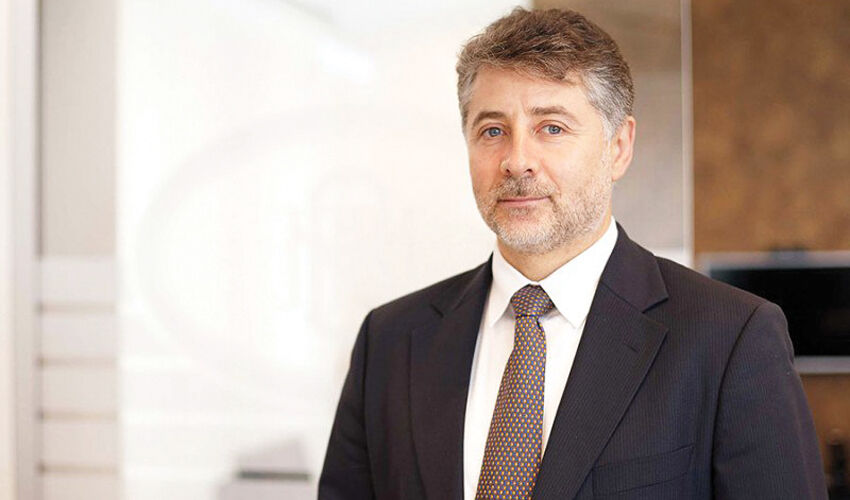
Vladimir Munteanu
Freedom of movement of capital
The principle of free movement of capital no longer automatically guarantees its movement to countries with cheap labor and open economies. According to Kearney FDI surveys, in 2025 investors have significantly changed their approach to selecting countries for capital allocation. Economic dynamism and regulatory efficiency topped the list of factors for the first time. This shift is supported by the data: in 12 out of 25 countries, economic stability was the top reason for investment.
According to the Kearney FDI Confidence Index 2025 report, 84% of investors plan to increase their investments over the next three years. Jurisdictions with transparent regulation, stable economies and mature institutions are a steady trend to be prioritized. FDI remains a relevant tool for global competition, but investment strategies are becoming increasingly selective and focused on manageable risks.
Among developing economies, Georgia is a case in point in terms of investment attractiveness, with its economy growing faster than the world average forecasts even in the face of global instability. Some other developing economies are also showing investment attractiveness to the world, which is not the case with Moldova’s economy, which has ranked last in terms of FDI inflows in recent years.
Moreover. The country experienced capital outflows last year. (see Logos Press “Capital flees Moldova”). This year, judging by the current account of the balance of payments, confirms this trend. In a country with a current account deficit of more than 5% of GDP, according to all canons, the risks of financial and economic instability also increase. This means, first of all, a significant depreciation of the national currency, uncontrollable inflation, problems with external debt servicing and other troubles, which does not add to the attractiveness in the eyes of international capital.
Open door technologies
Convergence with the EU legislation will require further efforts from the National Bank to simplify currency operations. The process of adapting Moldova’s legal framework to the EU norms in the field of currency regulation, which concerns the free movement of capital, was initiated by the outgoing Parliament. Law No. 124/2025 amended the Law on currency regulation No. 62/2008. Now the National Bank has started the final stage of liberalization of foreign exchange capital operations, making normative changes in the regulatory process. Export of capital will be fully liberalized.
According to Vladimir Munteanu, who was the first vice-governor of the National Bank, “the latest amendments to the law on foreign exchange operations represent a necessary step in the process of gradual liberalization of capital operations”.
The changes in the foreign exchange regulation implement the provisions of Article 267 of the Association Agreement with the EU regarding capital movements. They were introduced in order to implement the National Program for Moldova’s accession to the EU (Cluster 2 “Internal Market”, Chapter 4 “Free movement of capital”). First of all, they abolish the permissive regime for import/export operations of national currency cash (Moldovan lei) from Moldova by licensed banks and non-resident banks.
“This liberalization measure will have a positive impact on banks by debureaucratizing the relevant operations,” explains Vladimir Munteanu. – Thus, banks will not need to submit a package of documents to the NBM for authorization, as well as to submit the original NBM authorization to customs authorities, which will reduce the time and cost of import/export operations of Moldovan lei cash”.
Secondly, according to the expert, the amendments will help to expand the range of operations with financial instruments that can be carried out without NBM authorization. For instance, these include financial instruments in the form of shares or other equity securities, as well as long-term financial instruments in the form of bonds, if they are issued by an issuer with a credit rating not lower than AA/A. Last but very important is the expansion of cases in which residents may open current accounts and deposit accounts abroad with non-resident banks without the authorization of the National Bank of Moldova.
Generally speaking, the normative amendments cancel the restrictions on capital export that are in force in Moldova. The Treaty on the Functioning of the European Union (Articles 63-66) stipulates that member states shall, with certain exceptions, abolish all restrictions on capital movements and payments both within the EU and between member states and third countries.
“The acceptance of the Treaty provisions by the candidate countries is a precondition for EU accession,” says Vladimir Munteanu. Another thing is whether all restrictions will be removed in the negotiation process and how it will affect the mechanism of foreign trade operations, rules of repatriation of foreign currency proceeds, opening foreign currency accounts abroad, etc. For this purpose, the relevant regulations of the National Bank are being updated, and the talk about it is still to come.
“Moldova has already liberalized capital transactions to a large extent, especially those related to capital imports. At the same time, there are still restrictions on capital exports for residents, aimed at maintaining the state’s monetary and foreign exchange policy, as well as the stability of the national currency. The abolition of restrictions may provoke additional difficulties,” our interlocutor believes.
“Liberal” capital outflow?
What will happen if residents are presented with “wide opportunities” to open foreign currency accounts abroad? When a country transfers more money abroad (invests in financial and non-financial assets and sends more capital transfers) than it receives from there, it indicates a net capital outflow. And such a trend has been observed.
The capital account balance decreased to $0.90 million in the first half of 2025, according to the NBM, compared to $16.08 million in the second quarter of 2024. This was affected by a 3.2-fold increase, to $26.82 million, in private sector net capital outflows. Net capital inflow to the public sector decreased by 40.9% to $5.17 million.
In addition to capital outflow, according to economist Vladimir Golovatyuk, there is also a problem of efficiency of accumulated investments in the country. Here again the current account is not in our favor: “the incomes of foreign investors in Moldova significantly exceed the incomes of Moldovan investors, which they receive abroad and moreover – this negative balance has grown by 28%”.
Foreign investors received in Moldova $429 million, including $350 million in direct foreign investments, and Moldovan investors received abroad, respectively, $96 million and $2.5 million. “By the way, again for the first time the balance of primary income, which includes part of remittances from labor migrants, as well as income on investments, in Q2 2025 turned out to be negative. I.e. the revenues from migrants were already insufficient to cover the revenues that foreign investors receive in Moldova. Since the revenues from migrants are decreasing, while the revenues of foreign investors are growing,” says Golovatiuc.
Only grants to Moldova have increased. Grants to the government totaled $209 million and to nongovernmental organizations $126 million and grew by 57% overall, but that didn’t help. The current account deficit has grown and grown significantly.
According to preliminary data, in the second quarter of 2025, Moldova’s current account deficit amounted to -$1,005.91 million, increasing by 41.6%, due to a significant increase in the deficit of foreign trade in goods, deterioration of the balance of primary incomes, as well as a decrease in the surplus of the balance of services. At the same time, the growth of the secondary income surplus was insufficient to cover the impact of other components of the current account. The ratio of the current account deficit to GDP amounted to -21.1%, which is 4.4 p.p. higher than in the second quarter of 2024.
Thus, strengthening of the foreign trade imbalance is the main, but not the only reason for the growth of the current account deficit of the balance of payments. The problems in the export of services, as well as the insufficiency of other revenues that Moldova receives from abroad have also had an impact.
Behind the increase in the current account deficit are mainly economic problems, primarily in the export-oriented sector of the economy. However, there is one interesting cross-section of this issue, explains Vladimir Golovatiuc.
The accumulated foreign investments in the capital of economic entities increased by 27% over 2 years. At the same time, the export of RM decreased by 22% during the same period. Further. Incomes of foreign investors on direct foreign investments amounted to $350 mln in the first half of 2025, which is 32% more than their incomes for the first six months of 2023.
Thus, the efficiency of foreign investment, in terms of solving current account problems of the balance of payments, is extremely low – the volume of accumulated investment is growing, investors’ income is growing, while exports are shrinking and the current account deficit is growing.
Maybe investments are “going” to the wrong place? Only 21% of investments are invested in the capital of manufacturing and agriculture. If we also take into account the IT sector, we get that only 26% of all accumulated investments belong to export-oriented sectors of the economy, which is extremely low. “Thus, an important problem is the irrational sectoral structure of investments, including foreign investments,” the expert points to the problem.

